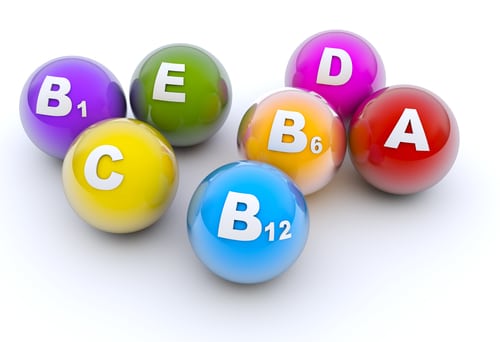
Why It May Not be a Good Idea to Take a Supplement in Isolation
One example of a supplement potentially being harmful is taking high doses of beta-carotene in supplement form. Beta-carotene is an antioxidant found in plant-based foods that are orange in color like carrots, sweet potatoes, apricots and green veggies like kale and spinach. Beta-carotene found naturally in food sources like these has been linked with a lower risk for certain types of cancer. Beta-carotene has antioxidant and anti-inflammatory properties, so you might expect it to be an ally in your fight to prevent cancer. At least one study didn’t bear this out.
This study carried out at the University of North Carolina at Chapel Hill found that smokers who took high doses of beta-carotene had an INCREASED risk for lung cancer. Why might this be? One theory is that beta-carotene may be a pro-oxidant at high doses, increasing free-radical damage, especially when you take it in supplement form. While beta-carotene in fruits and vegetables appears to have beneficial effects due to its antioxidant and anti-inflammatory properties, the same doesn’t seem to hold true if you take high doses in supplement form. Three other studies also showed a possible link between supplementing with beta-carotene and an increased risk for cancer.
The Best Way to Get Nutrients and Antioxidants is From Whole Foods
You can’t capture the essence of a whole food in pill form. When you bite into an apple, you’re getting an assortment of vitamins, minerals and an array of flavonoids that have natural antioxidant and anti-inflammatory properties. Plus, you’re getting pectin, a form of soluble fiber that boosts satiety. That’s why eating an apple is so filling and satisfying. You can’t package that into pill form.
A piece of whole fruit or whole vegetable is a balanced source of vitamins, minerals, and phytochemicals. These phytochemicals and other components work together synergistically to give you their health benefits. When you isolate out a single component of food and take it in high doses, the effects can be different – or even harmful.
Adverse Effects of Supplements
Most people assume that supplements are safe but every year reports surface of adverse reactions and even some deaths linked to the use of supplements. The FDA doesn’t directly regulate supplements. They only take action if there are concerns about safety. The manufacturer itself is responsible for making sure the product they put out is safe – and they have a profit motive. In addition, when you take a supplement, you’re not just getting the vitamin, mineral or nutrient listed on the label, you’re also getting stabilizers, preservatives starch and artificial coloring. Who needs more of those?
There’s another reason you have to be careful with supplements. Some vitamins can be toxic at high doses. Fat-soluble vitamins like vitamin A, D, E and K are stored in your liver and you can build up levels that are too high if you supplement at higher doses. Using vitamin A supplements can cause liver damage even at levels supplement manufacturers say are safe.
Supplement Interactions
Some supplements interact with each other and with prescription medications. For example, vitamin E, garlic supplements, omega-3s, and ginkgo thin your blood. If you’re taking another blood thinner like Coumadin, it increases the risk for bleeding. Plus, some supplements can alter levels of prescription medications so you’re at greater risk for toxicity or simply won’t get the full benefits. That’s why it’s always important to tell your doctor about any supplements you’re taking.
Certain Populations of People May Benefit From Vitamin or Mineral Supplements
Though it’s best to get nutrients from whole foods, certain groups of people may benefit from taking a vitamin or mineral supplement. For example, it’s important that women who plan on getting pregnant take folate and continue to take it throughout their pregnancy to avoid neural tube defects in her unborn baby. Most pregnant women also need supplemental iron. Some pre-menopausal women may need an iron supplement to avoid anemia, especially if they don’t consume enough calories or eat animal products.
Vitamin D is another vitamin that some people don’t get enough of because they live in areas that lack direct sunlight during certain times of the year and it can be challenging to get enough vitamin D through diet alone. That’s a situation where a supplement may be necessary to stay healthy.
People who have health problems where they can’t absorb certain vitamins may also need the higher concentrations that supplements offer. Older people may have problems absorbing some vitamins, particularly vitamin B12 and may not eat an adequate diet. If you eat a vegan diet, you’re at higher risk for vitamin B12 deficiency and may need to take a supplement. For a healthy person who eats an omnivorous diet, whole foods are still the best source of vitamins, minerals, and phytochemicals.
The Bottom Line?
Focus on improving your diet, eliminating processed foods and introducing more vitamin and mineral-rich whole foods into your diet. It’s hard to beat the combination of nutrients and fiber in fruits and vegetables and you don’t have to take a trip to a health food store to get them. Instead of buying supplements, take a trip to a Farmer’s market and get the nutrients you need naturally.
References:
Science Daily. “Long-Term Use of Nutrient Supplements May Increase Cancer Risk”
U.S. Food and Drug Administration. “Dietary Supplements”
Gastroenterology. 1991 Jun;100(6):1701-9.
Related Articles By Cathe:
Why Whole Foods Are Better Than Supplements
Is It Time to Ditch the Calcium Supplements?
6 Vitamins and Minerals You Should Think Twice Before Taking as a Supplement
This Dietary Component Was Identified as an “Under-consumed Nutrient of Public Health Concern”
4 Reasons Supplements Aren’t Always All They’re Cracked Up to Be
Can You Get Too Many Antioxidants?
The Problem with Probiotic Supplements: Are They What They Seem to Be?

